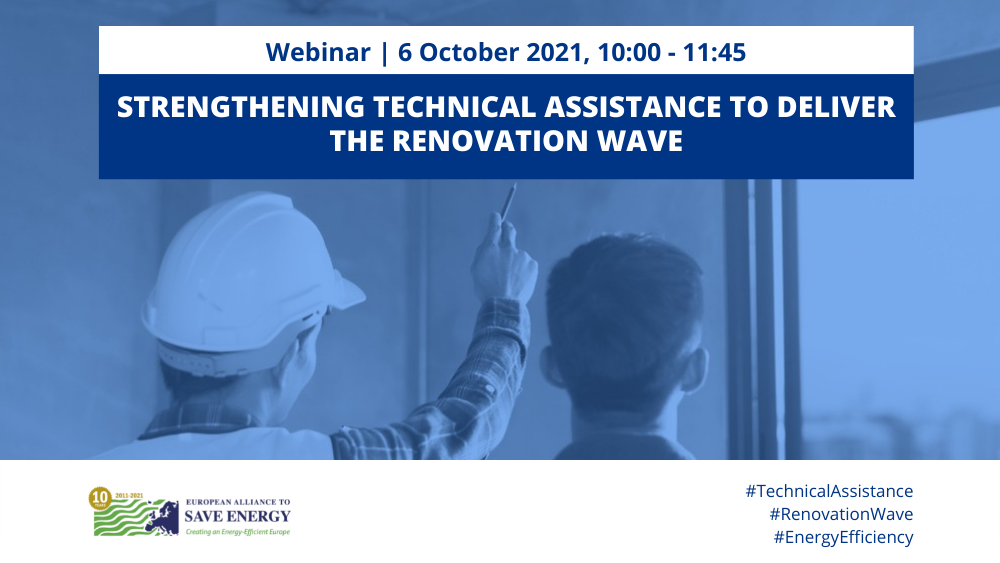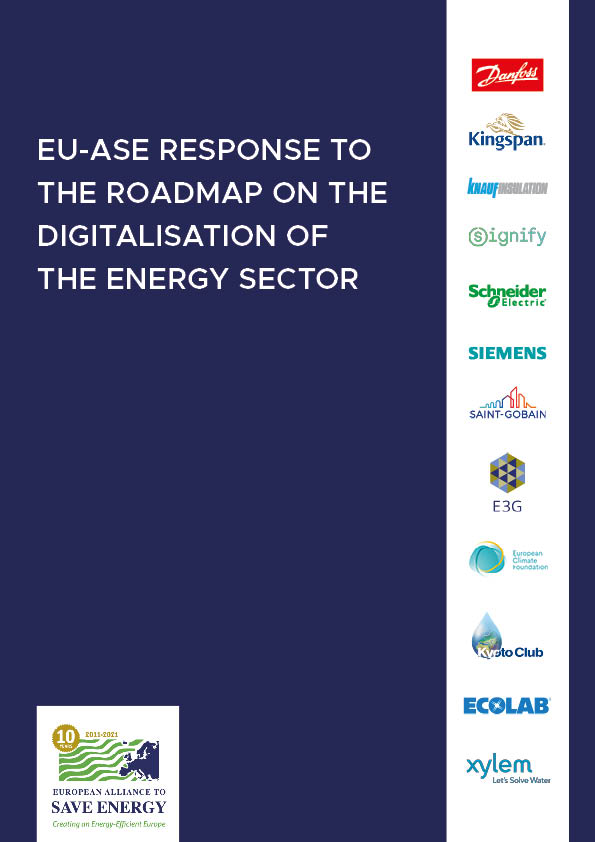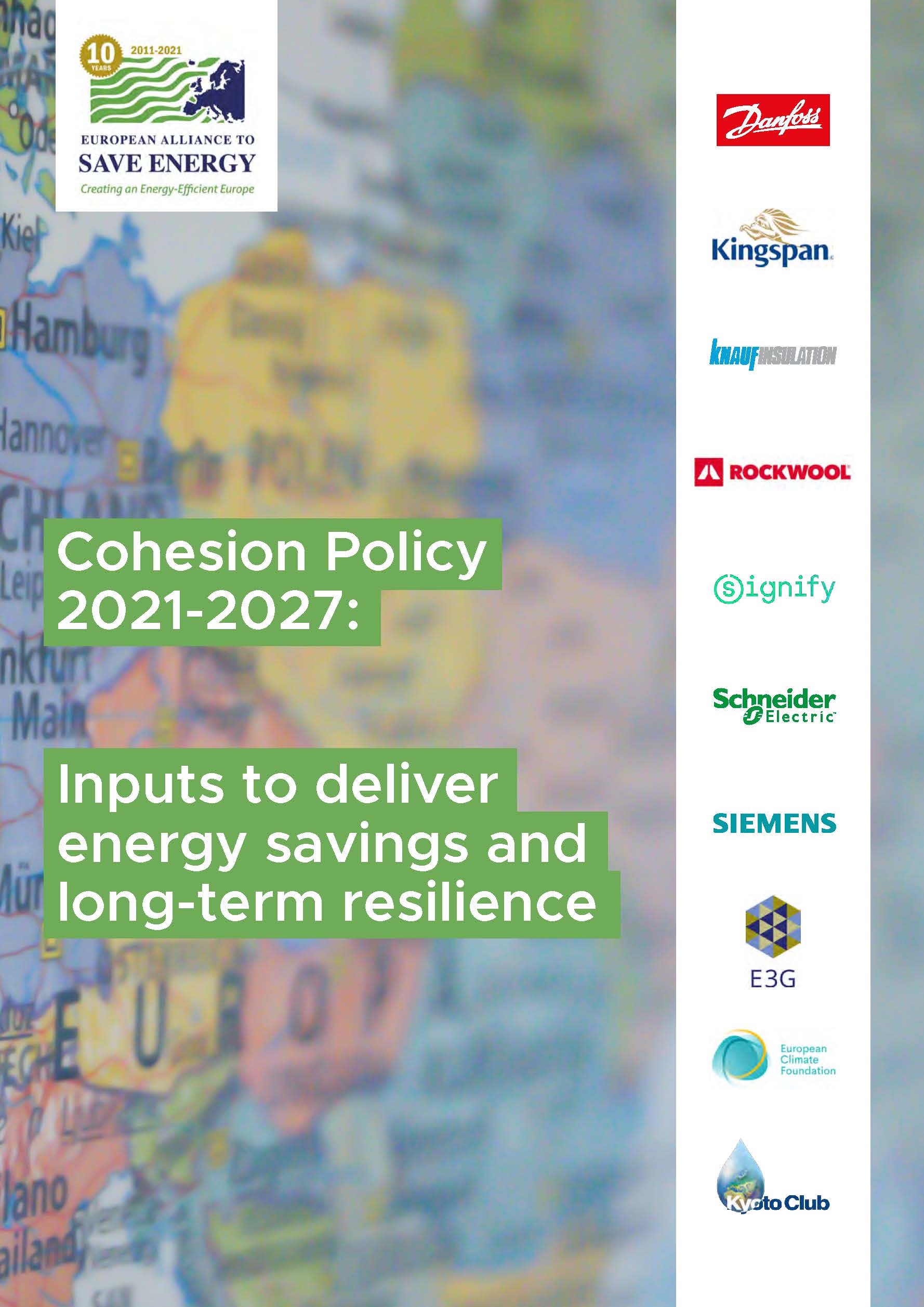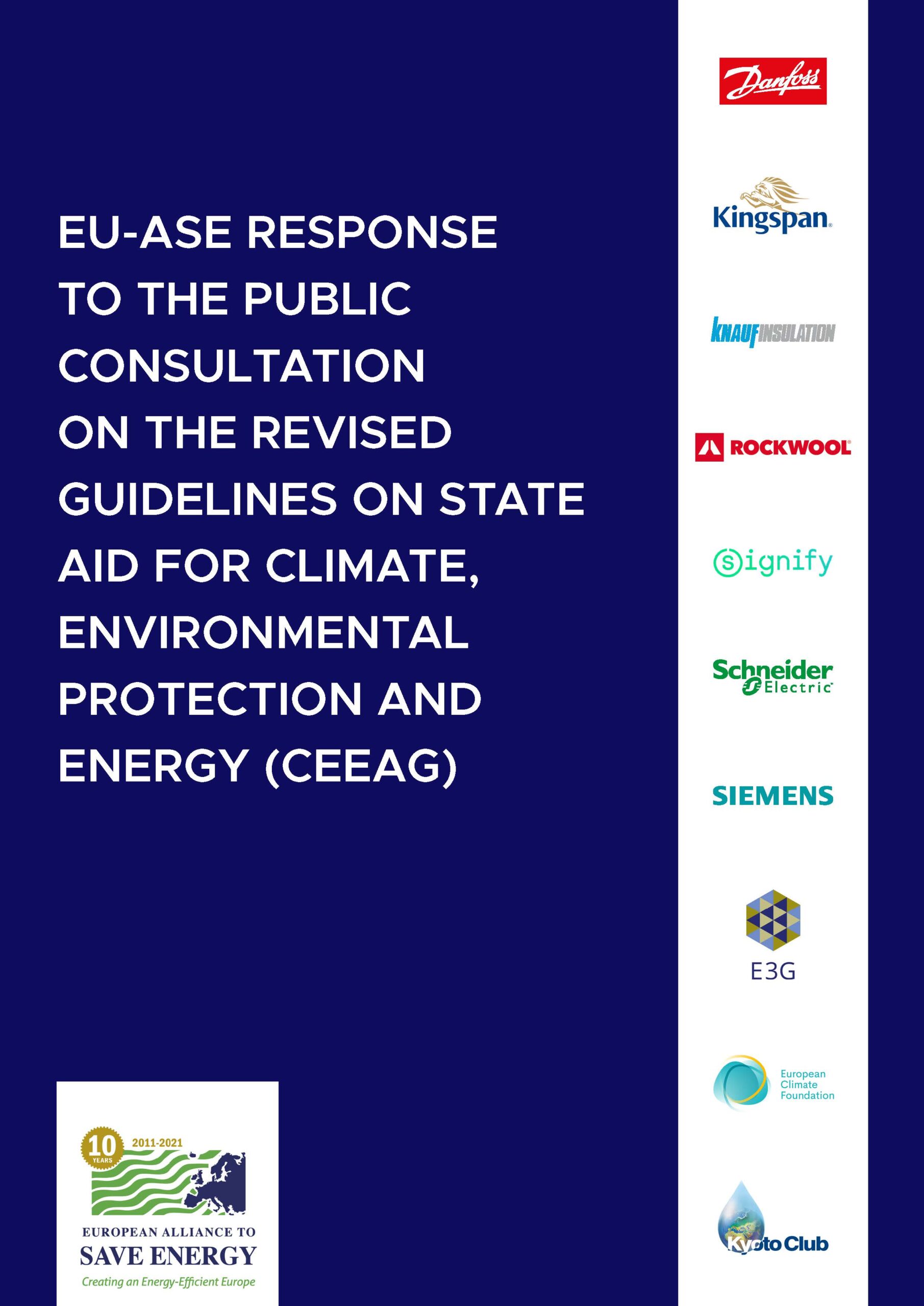Open letter: EU Taxonomy should recognise key role to increase energy efficiency of electrical and industrial solutions

In response to the Platform on Sustainable Finance’s consultation on preliminary recommendations for technical screening criteria for the EU taxonomy, the European Alliance to Save Energy (EU-ASE) addressed in an open letter the European Commission asking to recognise the key enabling role to increase energy efficiency of electrical and industrial solutions.
The letter says:
In May 2018, the European Commission published its action plan on sustainable finance which, among other elements, included a proposal to create a unified EU classification system (EU Taxonomy). We support this initiative that will provide greater clarity to investors on what can be genuinely considered sustainable economic activities. In order to fully deliver on the goals of the taxonomy, its technical screening criteria must include all the most beneficial and sustainable solutions available on the market.
Electrical equipment and industrial automation equipment and systems are key enabling technologies to deliver on energy efficiency and electrification. According to the Intergovernmental Panel on Climate Change (IPCC), the electrification of heating, transport and industry is essential, and the share of electricity should reach at least 60% in 2050 to keep global warming well below 1.5 °C.
Electrical equipment which helps control, command and optimise the electricity system is crucial because it improves energy efficiency, streamlines energy demand and supply, and supports the integration of renewable energies. Currently, there are about 8 billion electric motors in use in the EU, consuming nearly 50% of the electricity produced in the Union. Thanks to industrial automation technologies such as variable speed drives, highly efficient contactors and industrial control and automation, it is possible to achieve significant energy savings. For example, in Germany, demand-driven automation technology could deliver additional energy savings of between 10 % and 25 % in machines and plants.
For the reasons exposed above, we believe that it is essential that the EU taxonomy rightly recognises the enabling role of this industry for climate change mitigation, and we stress that:
- The full chain of electrical equipment from high voltage, medium voltage and low voltage should be covered in the manufacturing section, ensuring a comprehensive approach
- The enabling role of the electrical equipment as a system should be captured as a system. So, the eligible equipment should not be limited only to connected ones, missing other pieces needed to make the full system work.
- Industrial automation equipment and solutions should be included in the manufacturing section, either with a dedicated section or under the same section than electrical equipment.




